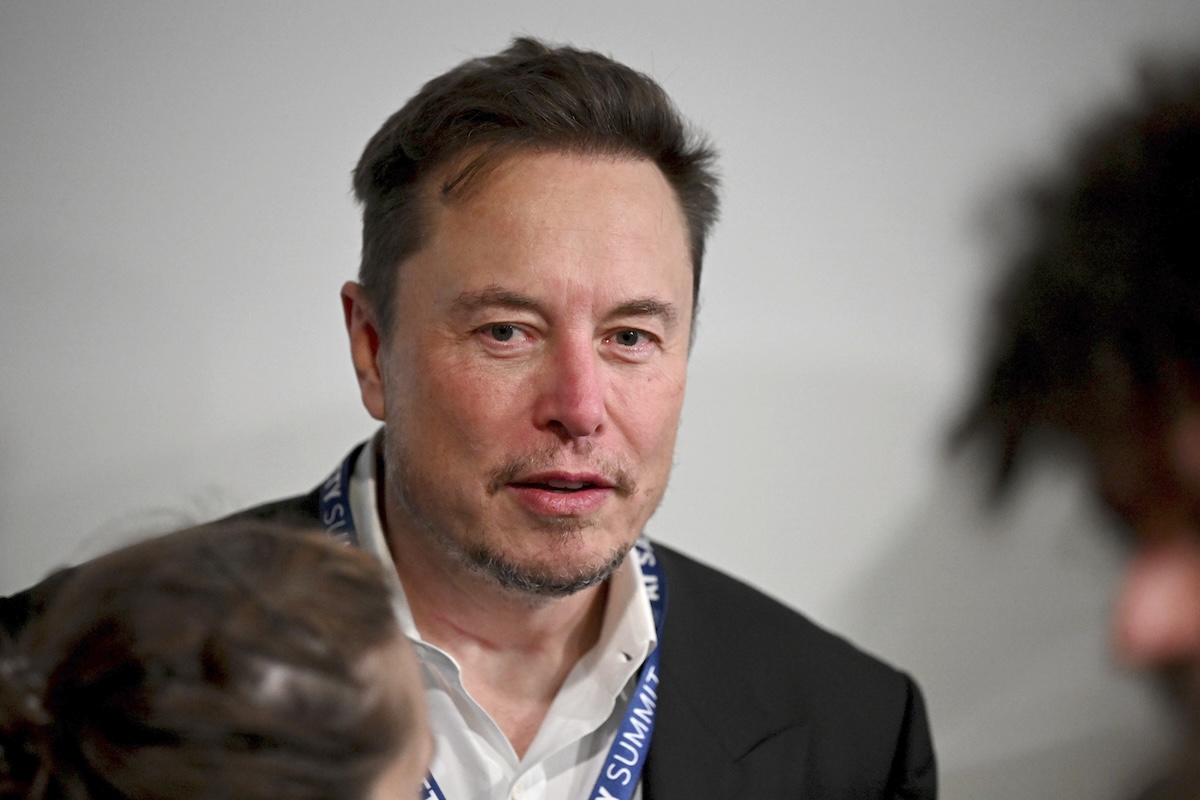“Was the richest person in the world overpaid?” asked Delaware chancellor Kathaleen Saint Jude McCormick, the judge who decided he was, and then invalidated Elon Musk’s $56 billion performance-based compensation package from Tesla. The shareholder derivative suit was filed by minority shareholder Richard Tornetta in 2018 and was just resolved in January 2024. Now Tesla must propose an alternative package or Musk can appeal to the Supreme Court of Delaware.
Delaware is home to more corporations than actual people due to its tax-friendly corporate laws and sophisticated judicial infrastructure staffed with judges who have written dozens of opinions that have influenced the shape and theory of corporate law around the world. Even so, this was a unique case in this important corporate-law jurisdiction. Only three previous Delaware cases have presented questions like those raised in Musk’s case, and each time judges declined to invalidate the challenged compensation packages.
Courts do not typically interfere with compensation decisions made by a corporation’s board of directors. The procedural aspects of this dispute as well as the nuanced standard by which the court made its determination is complex, evinced by the 200-page opinion issued by the court. But the very condensed version is that, in order to prevail, the Tesla board of directors had to prove that the compensation package was “entirely fair.” The judge, called a chancellor in this court, examined the makeup of the board of directors, the process by which the compensation package was negotiated, how much influence Elon Musk had over the board, and what rights other shareholders had to speak or otherwise influence the compensation decision. Ultimately, every issue reduced to one question: “Does Musk control Tesla?” For a variety of reasons, Chancellor McCormick decided that he did control Tesla and was able to influence the negotiation process unfairly.
Fifty-six billion is a stratospheric number. To cover 56 billion miles, for example, would require more than 300 trips to the sun and back. In terms of dollars, only one American city and nine American states have budgets larger. And a $56 billion GDP would place a country in the top 50% in the world ahead of several small but fully industrialized nations. So it is no wonder that some ask, “How much is too much?” Does the richest person in the world really need another $56 billion? Frankly, these are irrelevant questions that do not invoke any kind of moral analysis. Related questions, however, most certainly do.
Many different groups voice concern regarding income inequality. The Occupy Wall Street movement of the early 2010s is one example, and it has been a perennial theme of the presidential campaigns of Sen. Bernie Sanders and Dr. Cornel West and the congressional campaigns and continued public rhetoric of Reps. Anastasia Ocasio-Cortez and Rashida Tlaib. Sen. Sanders has even proposed a tax scheme that would reward companies that close the gap between executive compensation and median worker pay.
The loudest voices on most social issues tend to be those responding to a very real social problem but have misdiagnosed the underlying issue in a simplistic way. The issue of income inequality is no different.
First, income inequality per se is not really a social problem. It does not necessarily signal injustice or oppression on the part of a business owner, or structural problems in a jurisdiction’s labor laws. There should be an expectation of inequality between those who freely agree to employment terms and those who risk time and treasure to provide not only gainful employment but also goods and services to the community. Relative poverty is not in itself an issue that merits much concern, especially in a world in which those who live in conditions of absolute poverty subsist on very little. Who is not relatively poor when compared to Elon Musk, after all?
But it would be naïve to dismiss completely every complaint of those who protest income inequality and what they perceive as the excess of executive compensation. Among the many spurious claims of injustice are a few legitimate issues, even if they are not properly framed.
Tesla is a publicly traded company, meaning that, in addition to very wealthy executives and other shareholders, there are thousands of ordinary people who own a few shares through various investment vehicles, and employees who have received stock in the company as part of their compensation packages. Each of them is an owner with a stake in the company and an interest in seeing it flourish. Compensation in a company’s stock has been a boon for employees of modest means to build significant wealth over their careers. The earliest employees of companies like IBM, Apple, and Amazon have reaped enormous benefits from this portion of their compensation. What may seem like a de minimis investment to Elon Musk can represent a significant investment to minority shareholders and be the different between no retirement and a comfortable one.
While there is a substantial gulf between a few million dollars’ worth of stock and several billion dollars’ worth of stock, this is not comparable to the fixed gulf between classes before the 19th century or in economically underdeveloped nations today. This creative benefit has minimal impact on a company’s cash flow in its earliest days and motivates employees to remain with the company and keep their sights fixed on future growth rather than the immediate gain.
Now, I would suspect that most occupiers of Wall Street are not really thinking of this very common scenario. They are fixated on the present and have adopted Marxist definitions of work, price, and labor that make it difficult to capture a more panoramic and long-term view of what these types of compensation schemes can accomplish for common workers as well as executives, founders, and entrepreneurs. But a problem they would note is related to this aspect of employee compensation.
By all accounts, Musk’s compensation agreement was performance-based, meaning there was the possibility years ago when it was negotiated that he may have invested significant energy and time in the company and received much less, even nothing. But he hit prescribed performance and revenue benchmarks, which caused Tesla stock values to soar. Musk upheld his side of the bargain, but now Tesla has been barred ex post facto by the Delaware Court of Chancery from honoring it. All the while, however, Tesla shareholders—whether those who purchased shares directly or indirectly or received them as employee compensation—have benefited from Musk’s sweat equity invested in hitting targets that raised the value of company stock.
Almost every large multinational corporation’s stock offerings are complex. There are likely many classes of stock that are obtainable by different means—direct purchase, employee compensation, executive compensation, and any number of other means. And it is quite likely that these various classes of stock, especially those provided as part of compensation packages, vest (or become property that does not have to be returned if an employee leaves the company) at different times. This is the aspect of this mechanism of compensation that can create legitimate issues that the law can easily address.
Problems arise not when executives are paid more than an average employee, but when they are paid differently. Differences in the properties of various classes of stock often serve to misalign the interest of various classes of corporate employees. Executives have far more ability to influence the value of shares of stock than other corporate employees. An engineer can design excellent widgets, delivery drivers can have spotless driving records, and accountants can never have made a decimal error, but none of these sterling performance indicators has the same type of influence on the things that drive the value of a company like the decisions that executives have been hired to make. The executives most adept at making such decisions can command the most generous compensation.
Each employee is best served by rising stock values, not to mention the financial gains that accrue to each stockholder, whether a corporate employee or not. A problem presents itself, however, when the incentives of different employees are misaligned. If an executive receives a class of stock or compensation package that vests in a short horizon, but all other employees receive a class or package that vests on a longer horizon, then executives are best served by corporate policies that produce short-term gains, while an average employee is best served by corporate policies that produce durable long-term gains. Only one group, however, is empowered to set corporate policies.
This is not a theoretical scenario. There is always the danger of insider trading, a practice that involves trading stock based on “insider knowledge” that is not commonly known or discoverable. But this practice is illegal and constitutes a crime. Despite the Delaware court’s intervention in this case, courts are very deferential to the business decisions of boards because of what is known as the business judgment rule. This rule creates a legal presumption that directors are making informed, good-faith decisions on behalf of the company and its shareholders. This is an important rule that needs to remain in place because it is very difficult to determine whether directors were, in fact, making good-faith, well-informed decisions at some point in the past. The directors, as well as the corporate executives, owe a fiduciary duty to shareholders to make business decisions that are in the best interest of the company and that maximize financial return. They owe no special allegiance to their own personal interests, which is why the Delaware court sought to determine whether Musk held too much personal control over the Tesla board’s decision-making.
Generally, we need less regulation and not more. In fact, there is almost no problem that can be solved by more government interference. But in the context of corporate regulations, it is important to note that corporations are creatures of the state. They are not natural persons and exist only when a state recognizes their existence. The purists may eschew the use of the corporate form entirely, but as long as corporations do exist, the state has an obligation to regulate them in ways that eliminate opportunities for abuse and manipulation, even if it might happen inadvertently.
It would not satisfy the 99% of the Occupy Wall Street movement but enacting corporate regulation that aligns the interests of every shareholder from the very top of the org chart to the very bottom would remove the disparity in benefits that different classes of shareholders can receive by virtue of the different classes of stock they hold. There would be no temptation on the part of executives or boards to make decisions that may work against the interests of other shareholders, including non-executive employees. Such a regulation would be simple to enact but should come from state legislatures rather than administrative agencies with less democratic accountability.
Such a scheme would not stop boards from compensating executives in cash in any amount, but such packages would likely not be beneficial to shareholders because they do not prompt executives to adopt the long view as they make business decisions, and they deplete cash reserves. But cash compensation has never been what drives protesters to the streets or politicians to populist screeds.
It is impossible to say in a case like Elon Musk’s if such a consideration would have changed the outcome. The structure of his now-invalidated agreement was too complex for a simplistic analysis. But it is safe to say that no court’s standard for answering the questions presented by the case would fail to look favorably upon a compensation scheme that fully aligns the interests of all shareholders, and it would be difficult to find any shareholder who would be displeased by the value added to his or her holdings as a result of the hard work, determination, and responsible decision-making of an executive fully invested in long-term, sustainable financial growth.

